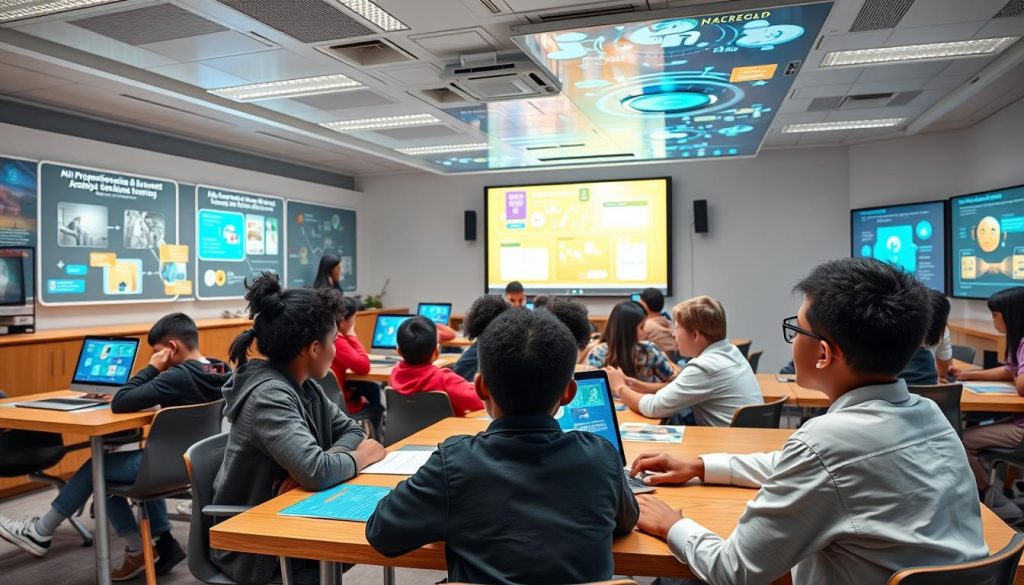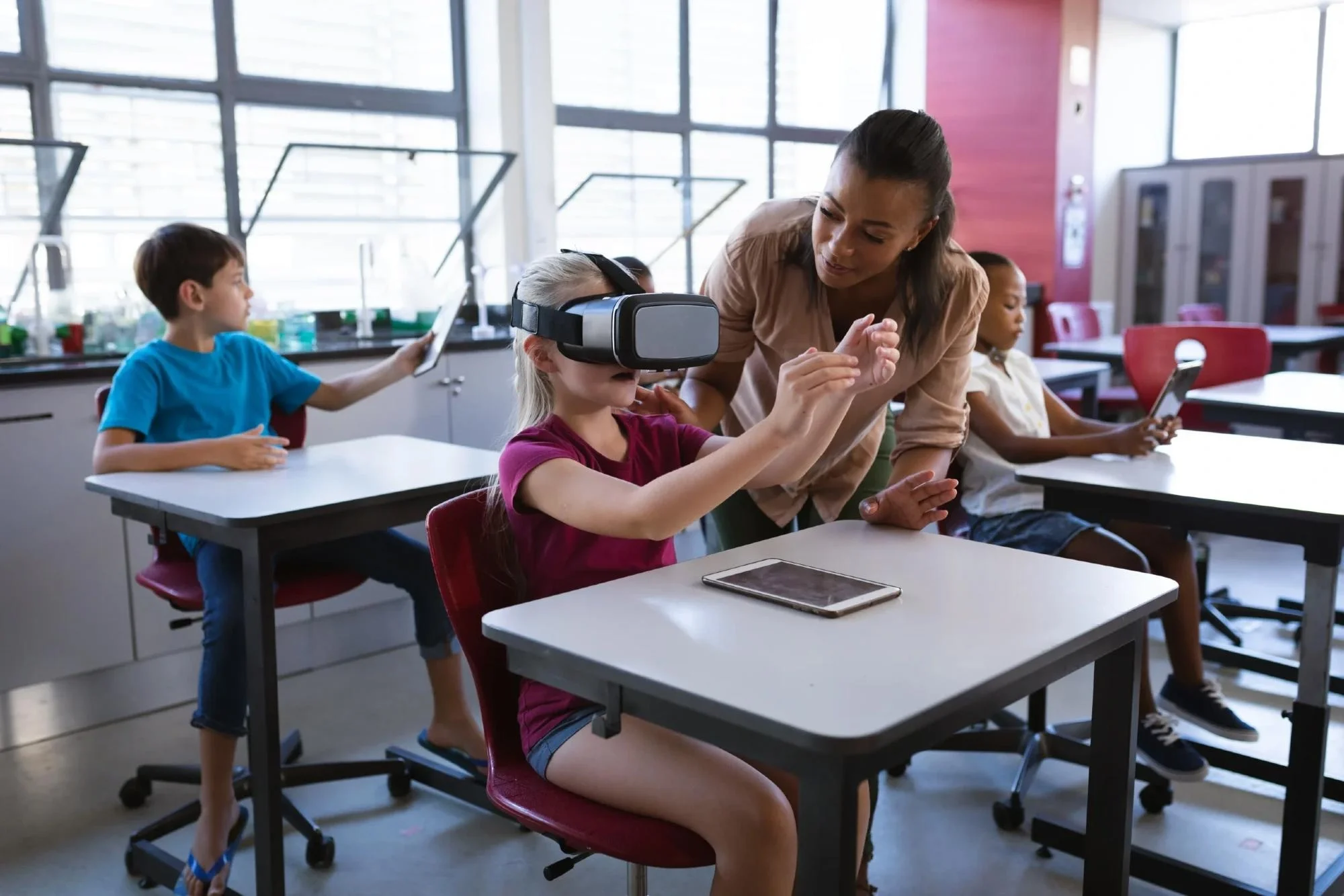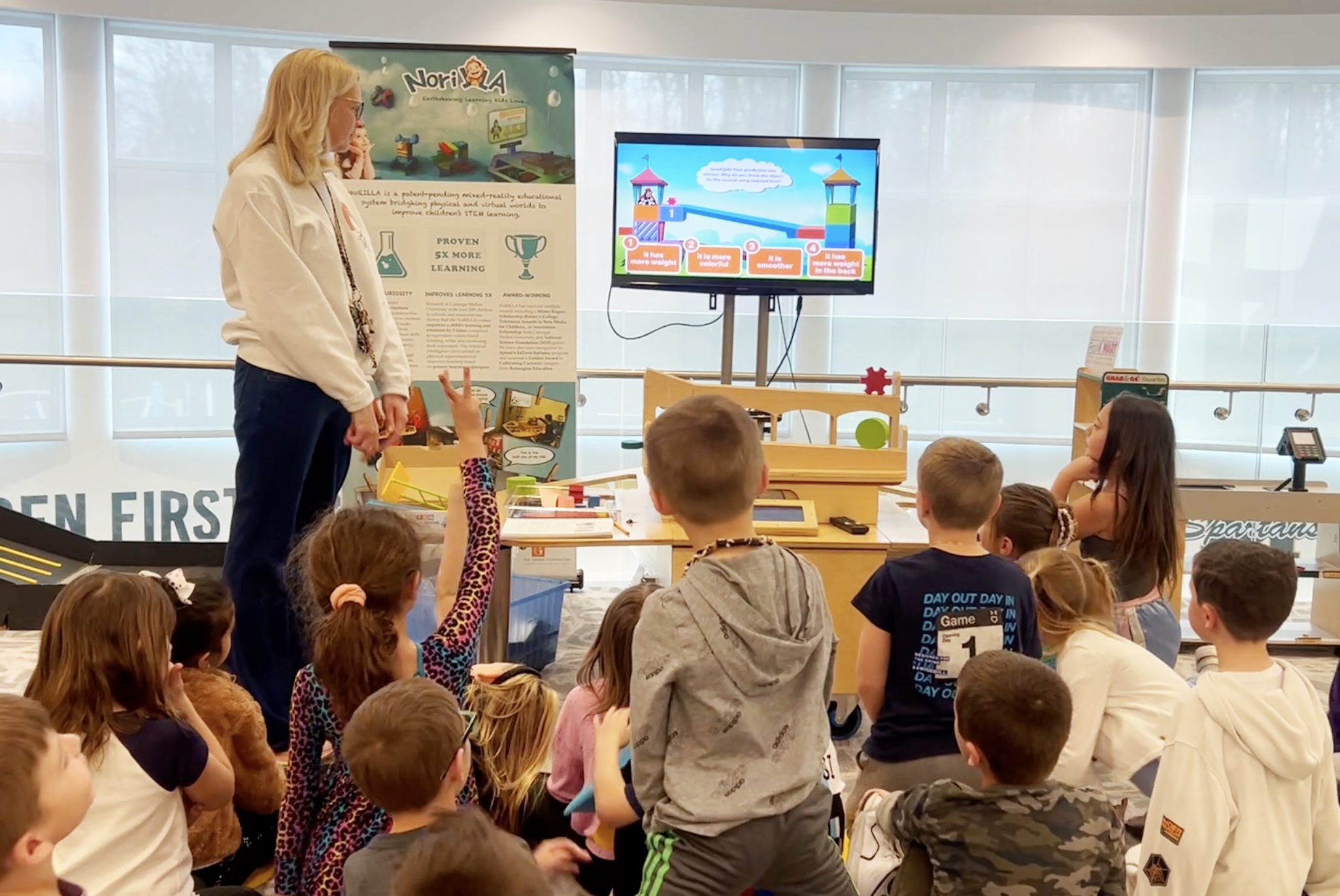
Teachers' intentions to teach AI in K-12 settings are primarily driven by autonomous motivation, which is strengthened by basic psychological need satisfaction and moderated by self-efficacy and contextual factors.
Teachers' intentions to teach AI in K- settings are primarily driven by autonomous motivation which is strengthened by basic psychological need satisfaction and moderated by self-efficacy and contextual factors Objective... continue

A capstone design project successfully developed an interactive Unity application and lesson plan that uses bio-inspired animal vision concepts to engage middle school students in STEM learning.
A nbsp capstone design project successfully developed an interactive Unity application and lesson plan that uses bio-inspired animal vision concepts to engage middle school students in STEM learning Objective The... continue

Using semantic tagging on AI-generated science texts reveals key educational topics that can effectively guide STEM curriculum design for K-12 students through data-driven approaches.
Objective The main goal of this study was to employ semantic tagging techniques on AI-generated science texts to identify key semantic tags that can serve as indicators for determining relevant... continue

A comprehensive bibliometric analysis of 2800 AI in education papers from 1990-2024 reveals explosive growth post-2018 driven by generative AI, with significant concentration in higher education and medical fields, but concerning gaps in ethical governanc
A comprehensive bibliometric analysis of AI in education papers from - reveals explosive growth post- driven by generative AI with significant concentration in higher education and medical fields but concerning... continue

A comprehensive scoping review of AI literacy assessments reveals that most studies focus on K-16 students using questionnaires and computer-based tests to primarily assess AI knowledge, with significant gaps in reliability/validity reporting and limited
A comprehensive scoping review of AI literacy assessments reveals that most studies focus on K- students using questionnaires and computer-based tests to primarily assess AI knowledge with significant gaps in... continue

An AI instructional module significantly improved pre-service teachers' knowledge, attitudes, and comfort levels toward artificial intelligence while revealing their primary conceptualization of AI as computers mimicking human intelligence.
An AI instructional module significantly improved pre-service teachers' knowledge attitudes and comfort levels toward artificial intelligence while revealing their primary conceptualization of AI as computers mimicking human intelligence Objective The... continue

Despite decades of civil rights legislation and educational reform efforts, Texas K-12 schools continue to exhibit systemic inequities in disciplinary practices, with economically disadvantaged students and English Language Learners facing significantly h
Despite decades of civil rights legislation and educational reform efforts Texas K- schools continue to exhibit systemic inequities in disciplinary practices with economically disadvantaged students and English Language Learners facing... continue

K-12 students can learn effective AI prompting skills through hands-on practice with immediate AI-generated feedback, significantly boosting their confidence in using AI for educational purposes.
K- students can learn effective AI prompting skills through hands-on practice with immediate AI-generated feedback significantly boosting their confidence in using AI for educational purposes Objective The main goal of... continue

Students primarily use generative AI for creative content generation and language support, with emerging applications in personal development areas like career guidance and emotional support that have received little academic attention.
Students primarily use generative AI for creative content generation and language support with emerging applications in personal development areas like career guidance and emotional support that have received little academic... continue

Structured AI coaching significantly improves high school STEM teachers' perceptions of artificial intelligence as a powerful tool for fostering equity and inclusion in their classrooms.
Structured AI coaching significantly improves high school STEM teachers' perceptions of artificial intelligence as a powerful tool for fostering equity and inclusion in their classrooms Objective The primary purpose of... continue

Integrating ChatGPT-powered AI tutoring with virtual reality classrooms creates highly engaging and well-tolerated learning environments for cardiac anatomy education in K-12 students.
Integrating ChatGPT-powered AI tutoring with virtual reality classrooms creates highly engaging and well-tolerated learning environments for cardiac anatomy education in K- students Objective The main goal of this study was... continue

Ontario secondary teachers frequently use data for problem-solving in online courses, but gaps in training, infrastructure, and strategic application limit their ability to transform data into meaningful instructional improvements.
Ontario secondary teachers frequently use data for problem-solving in online courses but gaps in training infrastructure and strategic application limit their ability to transform data into meaningful instructional improvements Objective... continue